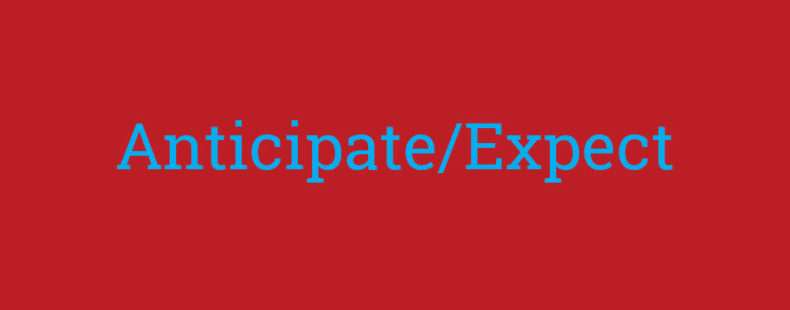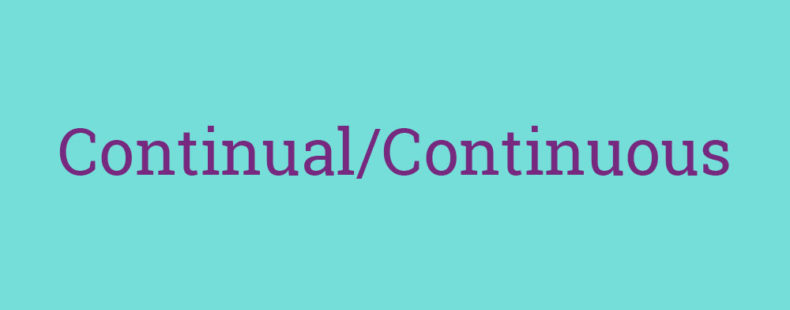anticipate/expect
The slight difference between anticipate and expect has to do with whether or not any action is taken.
To anticipate something means “to foresee or expect something to happen in the future, and to perform an action in preparation for it.” So, if a bunch of martians anticipate a bumpy ride to Earth (friendly trip, of course), they’ll build a special force field beforehand to make sure nobody gets UFO-sick.
Expect means to regard something as likely to happen, but it doesn’t require any action beforehand. We expect a good turnout at the Silly Putty Convention. No action required, because everyone knows Silly Putty is awesome.



































